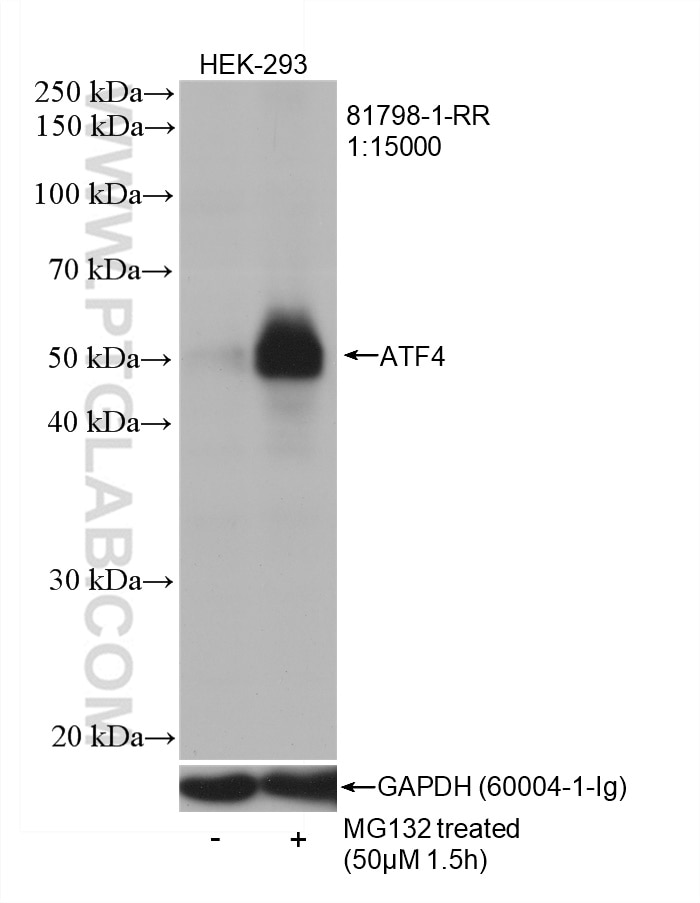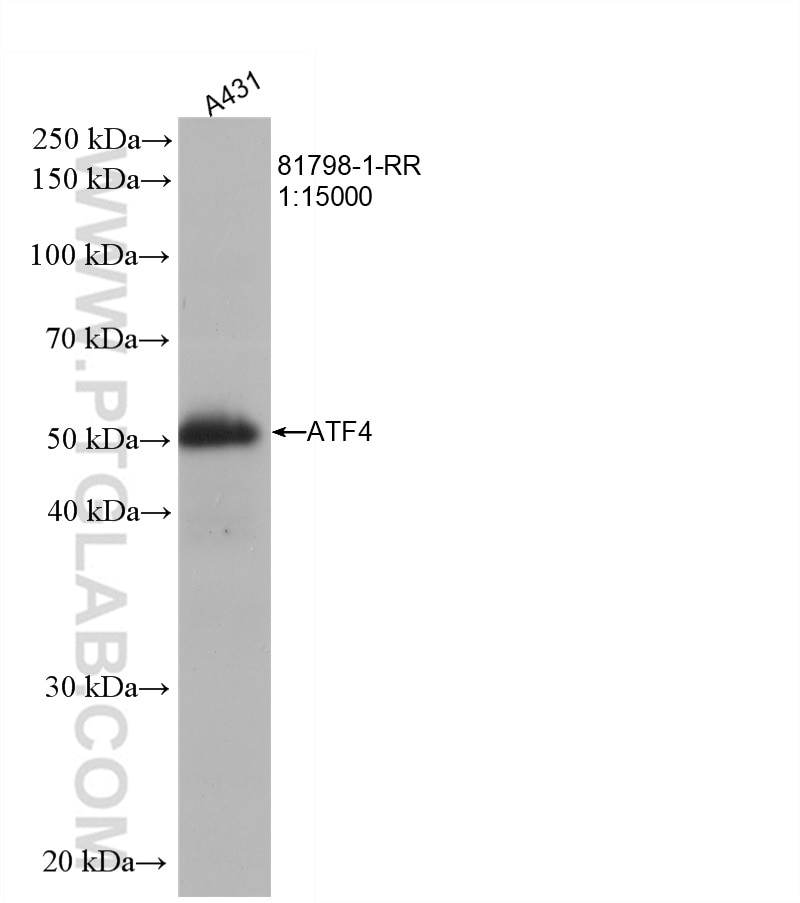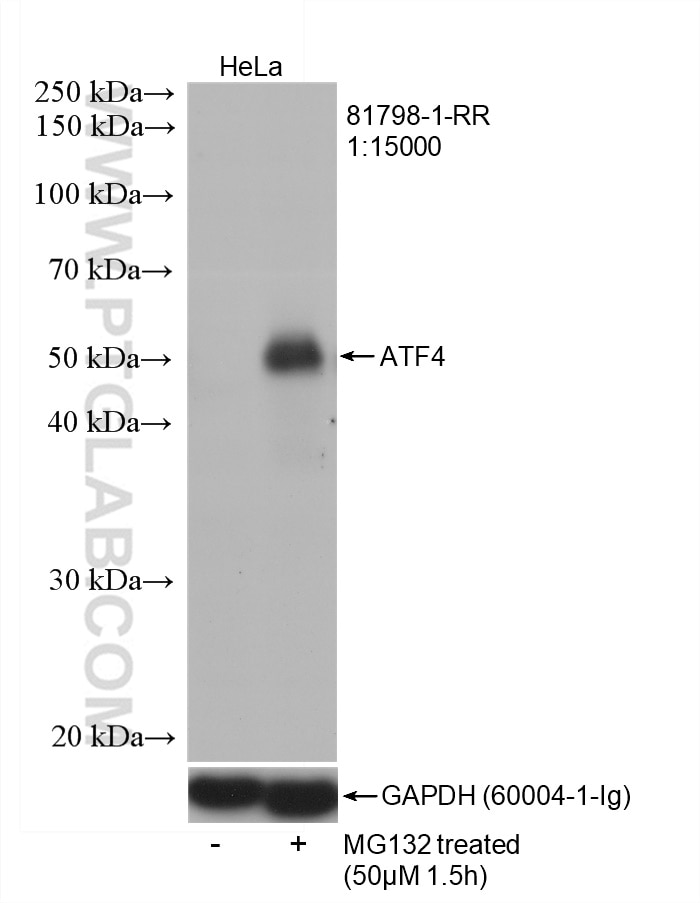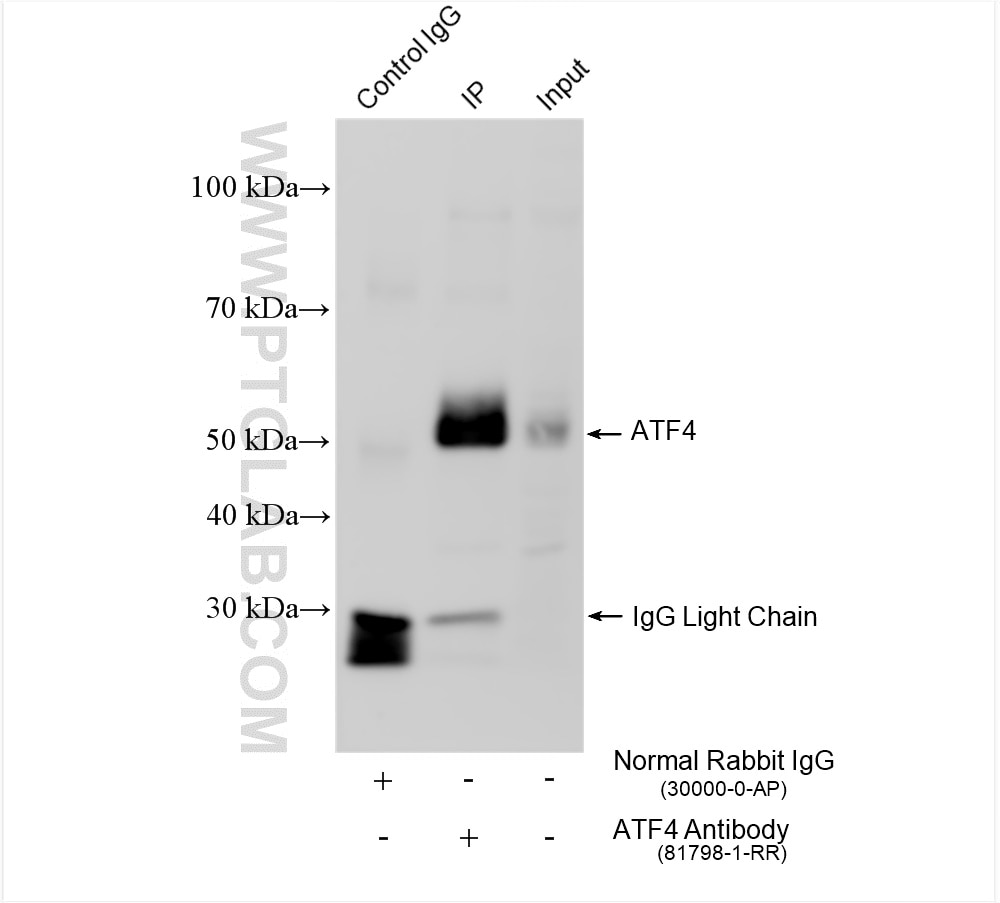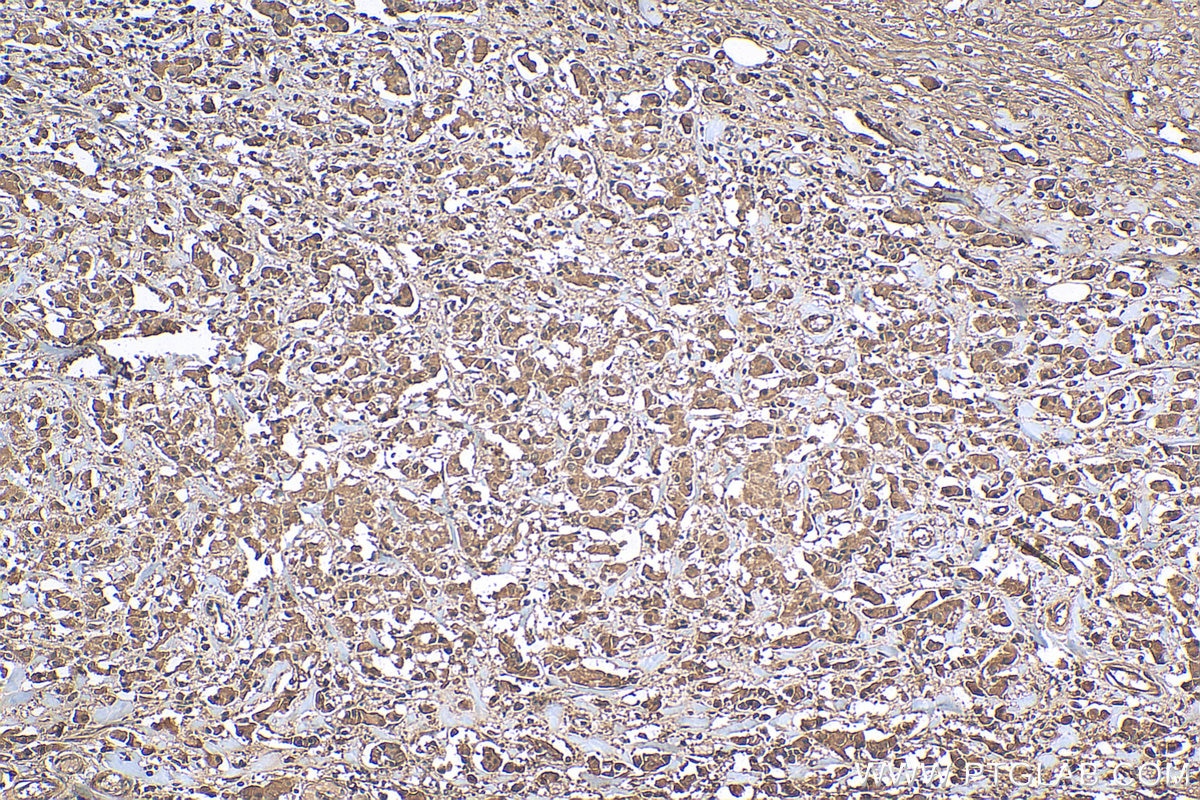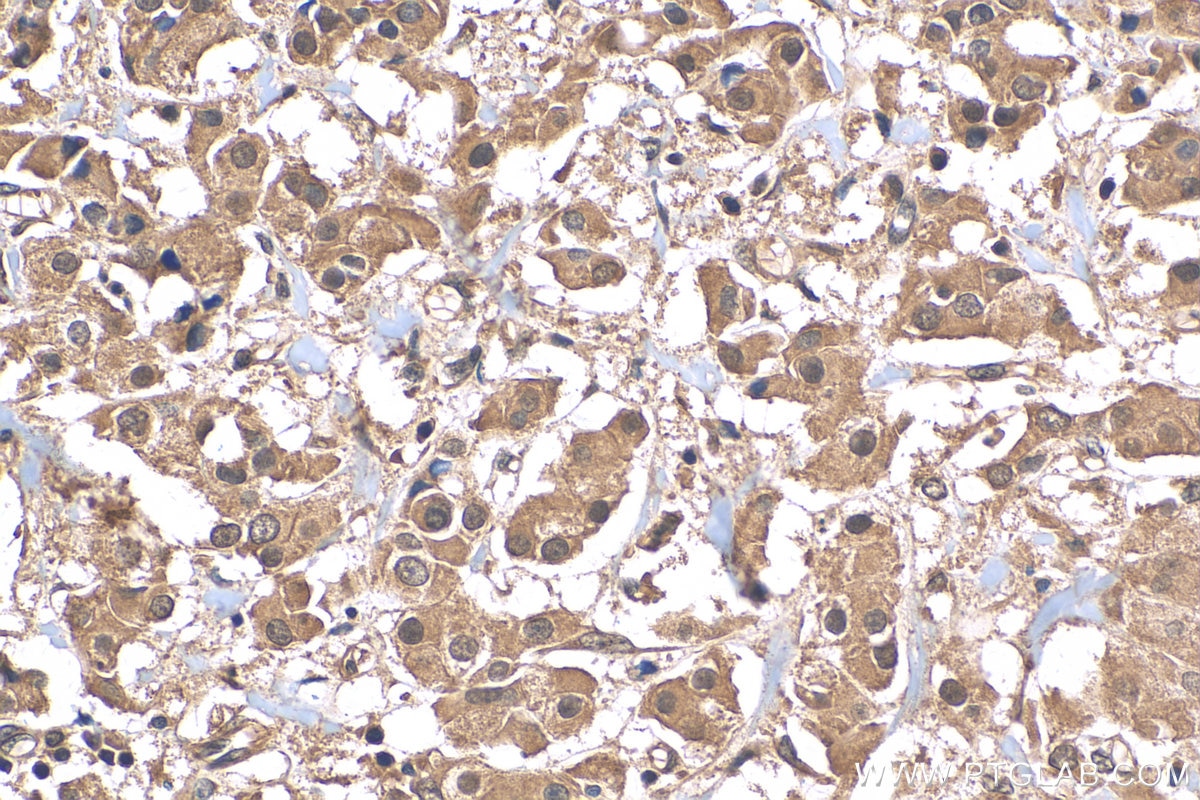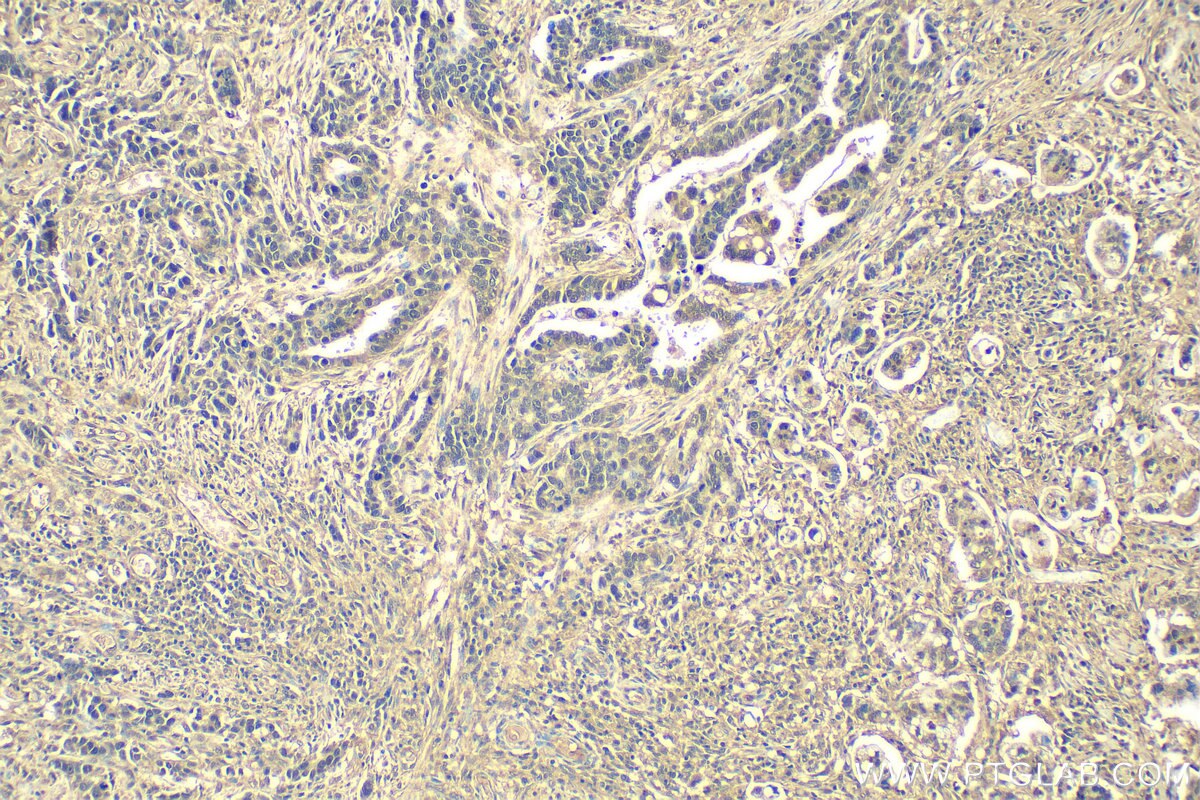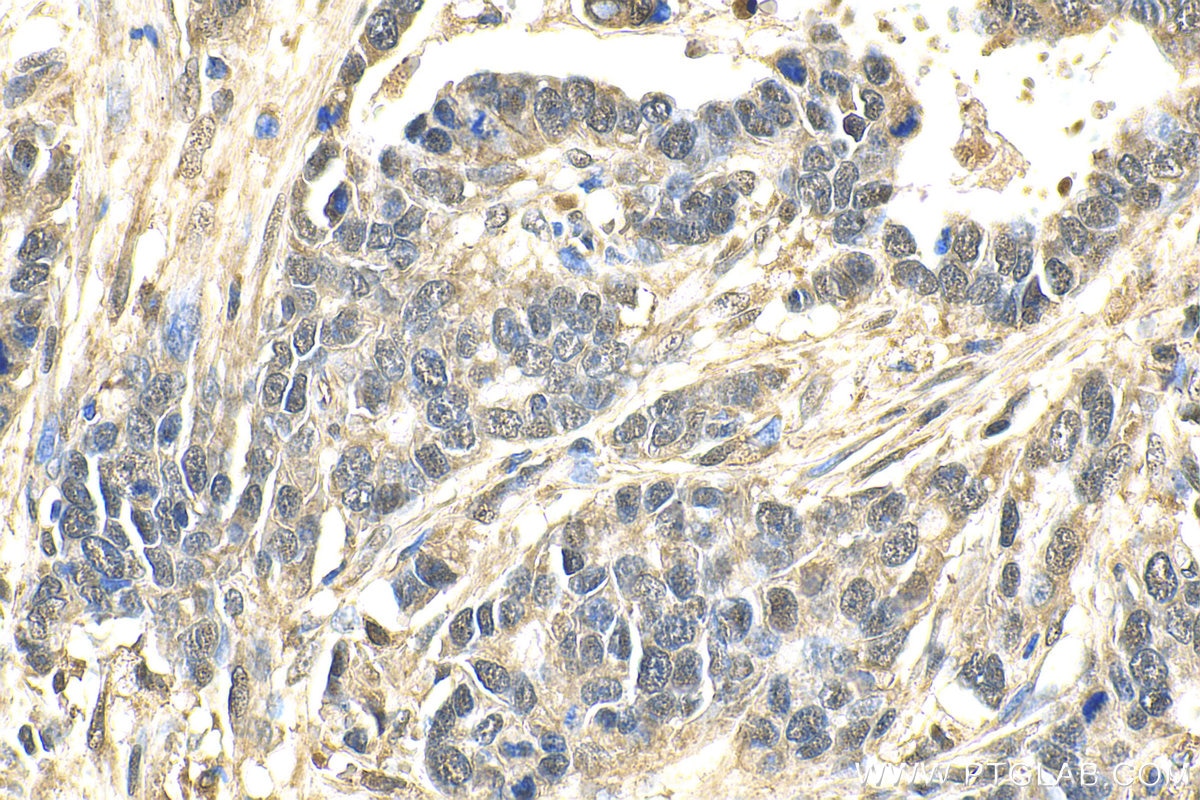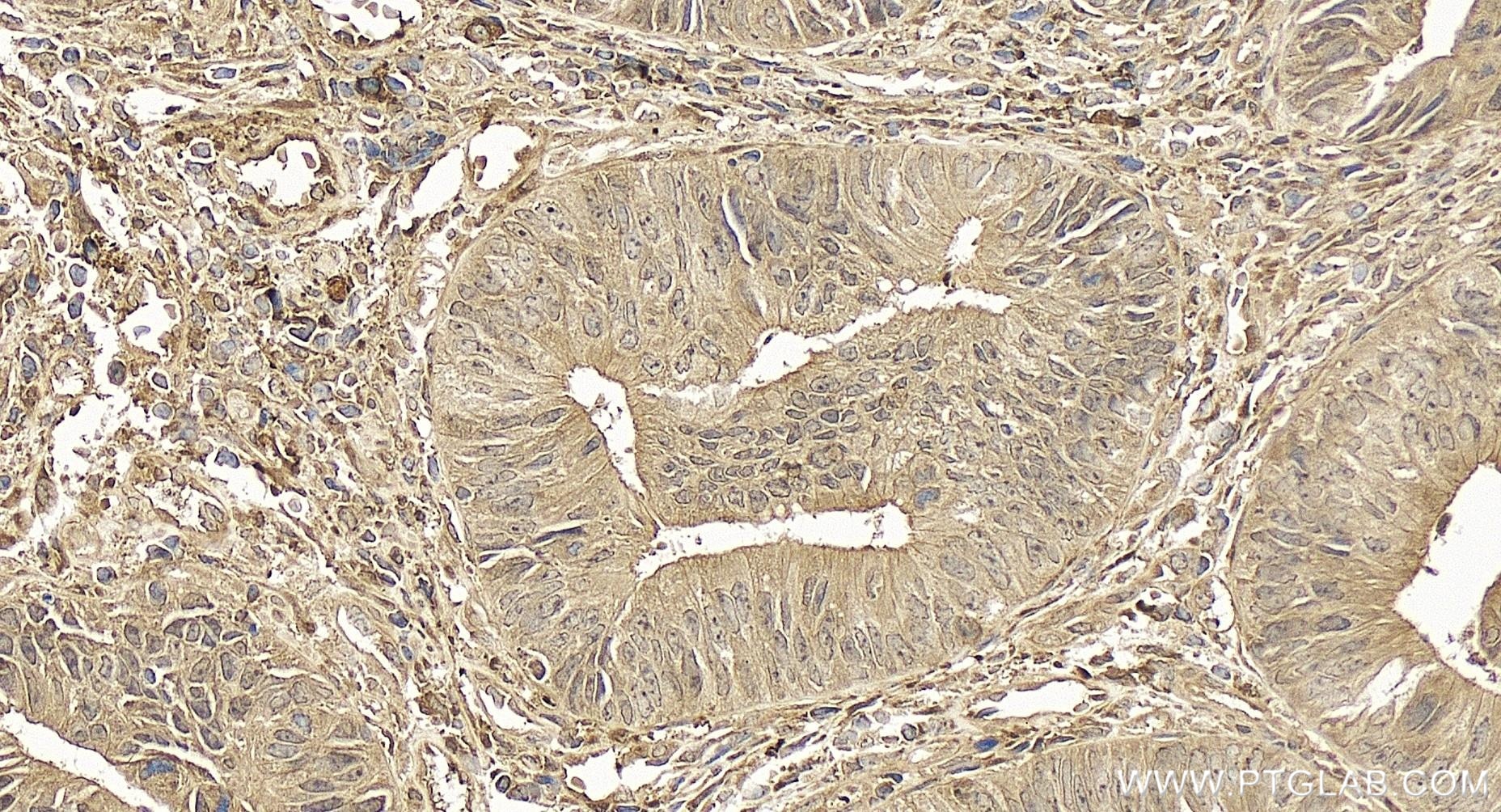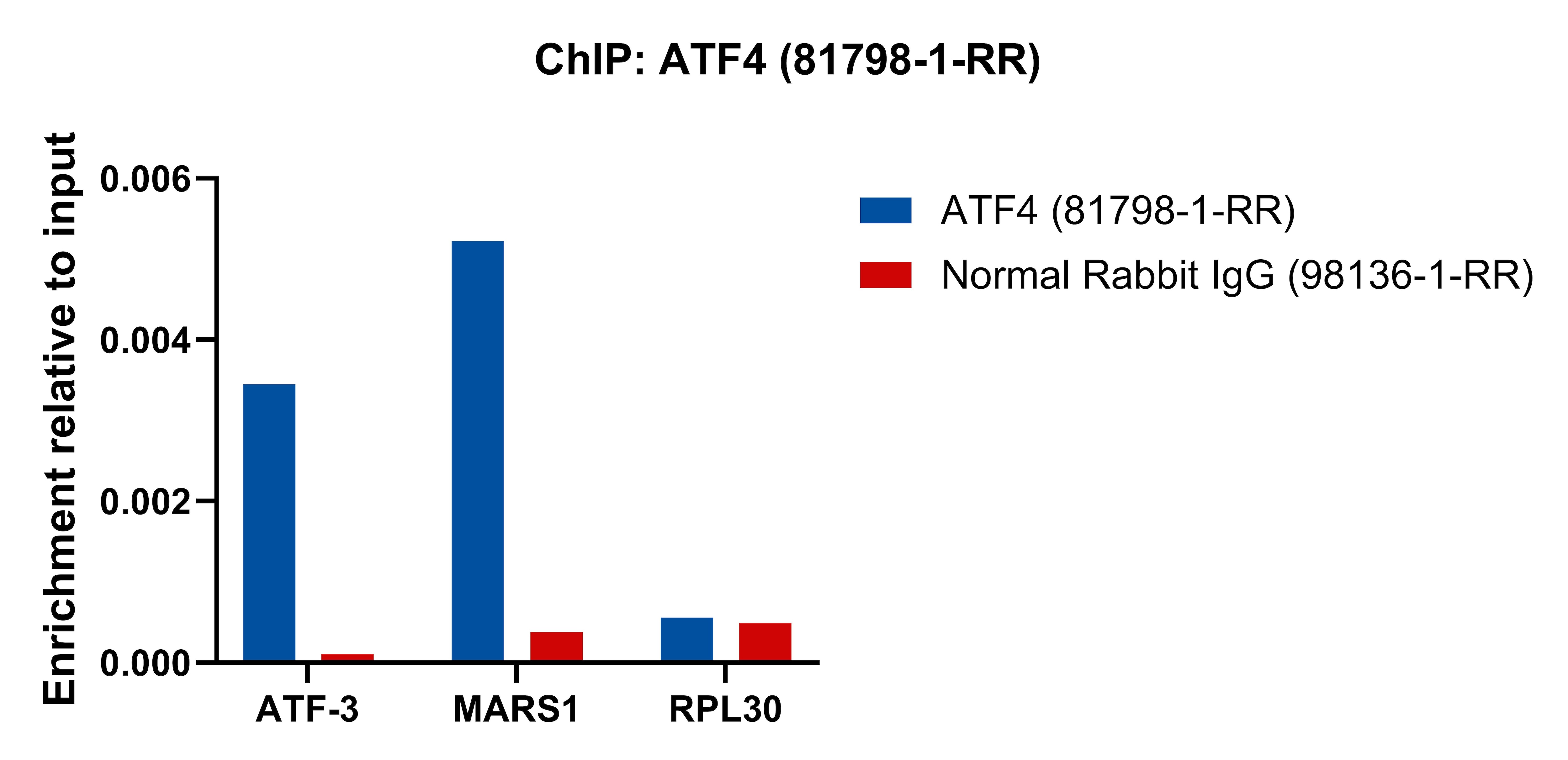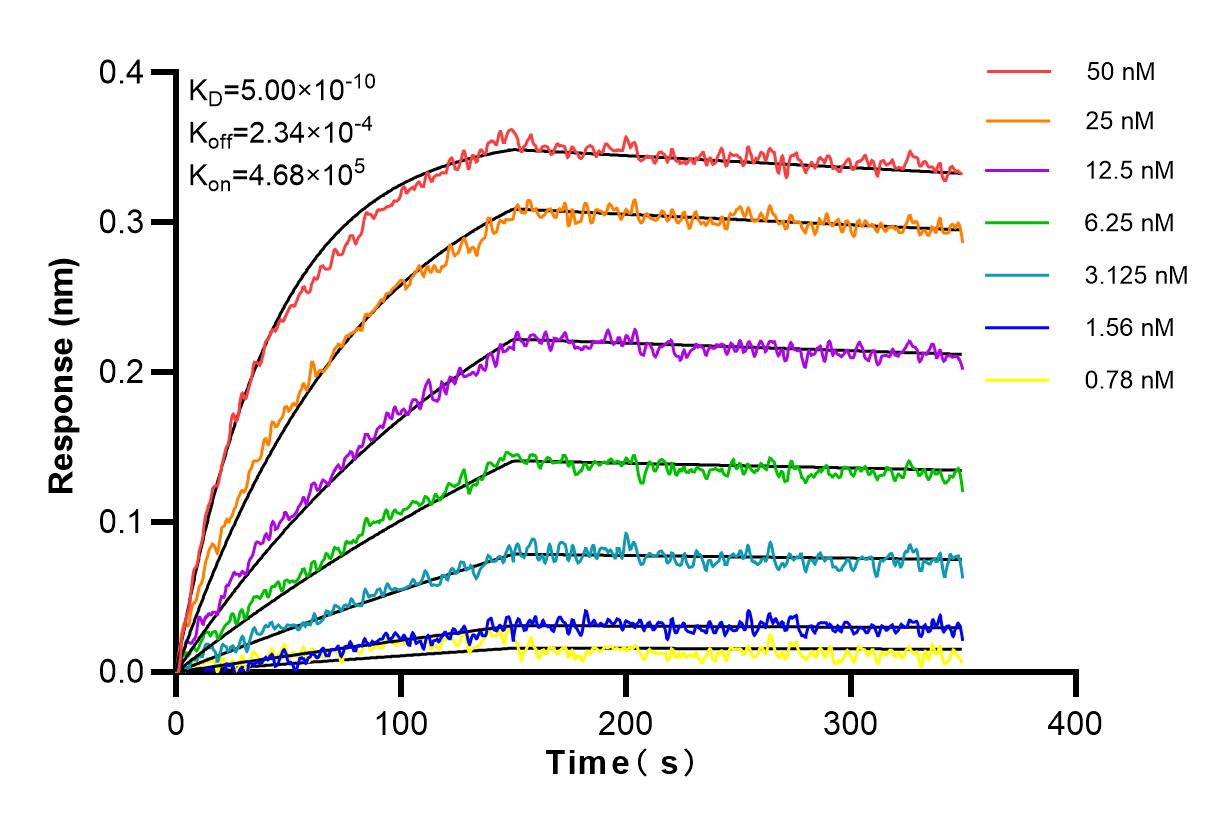Anticorps Recombinant de lapin anti-ATF4
ATF4 Recombinant Antibody for WB, IHC, IP, ELISA, ChIP-qPCR
Hôte / Isotype
Lapin / IgG
Réactivité testée
Humain, souris
Applications
WB, IHC, IP, ELISA, ChIP-qPCR
Conjugaison
Non conjugué
CloneNo.
5N3
N° de cat : 81798-1-RR
Synonymes
Galerie de données de validation
Applications testées
| Résultats positifs en WB | cellules A431, MG132 treated HEK-293 cells, MG132 treated HeLa cells |
| Résultats positifs en IP | cellules HEK-293, |
| Résultats positifs en IHC | tissu de cancer du sein humain, tissu de cancer de l'estomac humain, tissu de cancer du côlon humain il est suggéré de démasquer l'antigène avec un tampon de TE buffer pH 9.0; (*) À défaut, 'le démasquage de l'antigène peut être 'effectué avec un tampon citrate pH 6,0. |
| Résultats positifs en ChIP-qPCR | Tunicamycin (2ug/mll) overnight NIH/3T3 cells, |
Dilution recommandée
| Application | Dilution |
|---|---|
| Western Blot (WB) | WB : 1:5000-1:50000 |
| Immunoprécipitation (IP) | IP : 0.5-4.0 ug for 1.0-3.0 mg of total protein lysate |
| Immunohistochimie (IHC) | IHC : 1:50-1:500 |
| CHImmunoprécipitation (IP)-QPCR | CHIP-QPCR : 1:10-1:100 |
| It is recommended that this reagent should be titrated in each testing system to obtain optimal results. | |
| Sample-dependent, check data in validation data gallery | |
Informations sur le produit
81798-1-RR cible ATF4 dans les applications de WB, IHC, IP, ELISA, ChIP-qPCR et montre une réactivité avec des échantillons Humain, souris
| Réactivité | Humain, souris |
| Hôte / Isotype | Lapin / IgG |
| Clonalité | Recombinant |
| Type | Anticorps |
| Immunogène | ATF4 Protéine recombinante Ag1279 |
| Nom complet | activating transcription factor 4 (tax-responsive enhancer element B67) |
| Masse moléculaire calculée | 39 kDa |
| Poids moléculaire observé | 50 kDa |
| Numéro d’acquisition GenBank | BC022088 |
| Symbole du gène | ATF4 |
| Identification du gène (NCBI) | 468 |
| Conjugaison | Non conjugué |
| Forme | Liquide |
| Méthode de purification | Purification par protéine A |
| Tampon de stockage | PBS with 0.02% sodium azide and 50% glycerol |
| Conditions de stockage | Stocker à -20°C. Stable pendant un an après l'expédition. L'aliquotage n'est pas nécessaire pour le stockage à -20oC Les 20ul contiennent 0,1% de BSA. |
Informations générales
ATF4 is a transcription factor, that accumulates predominantly in osteoblasts, where it regulates terminal osteoblast differentiation and bone formation[PMID: 19016586]. As a basic leucine-zipper (bZip) transcription factor, ATF4 can regulate amino acid metabolism, cellular redox state, and anti-stress responses. It also regulates age-related and diet-induced obesity and glucose homeostasis in mammals, and has conserved metabolic functions in flies[PMID: 19726872]. Due to its location at chromosome 22q13, a region linked to schizophrenia, ATF4 is considered as a positional candidate gene for schizophrenia[PMID: 18163433]. Otherwise, since ATF4 is induced by tumour microenvironmental factors, and regulates processes relevant to cancer progression, it might serve as a potential therapeutic target in cancer. Endogenous ATF4 protein has a molecular mass of 50kd. [PMID: 17726049]. ATF4 can bind DNA as a homodimer and as a heterodimer. ATF4 is ubiquitinated by SCF(BTRC) in response to mTORC1 signal, followed by proteasomal degradation and leading to down-regulate expression of SIRT4, so the molecular weight of ATF4 may be 70 kDa.
Protocole
| Product Specific Protocols | |
|---|---|
| WB protocol for ATF4 antibody 81798-1-RR | Download protocol |
| IHC protocol for ATF4 antibody 81798-1-RR | Download protocol |
| IP protocol for ATF4 antibody 81798-1-RR | Download protocol |
| Standard Protocols | |
|---|---|
| Click here to view our Standard Protocols |
